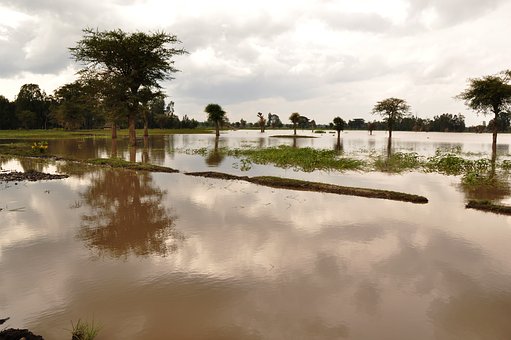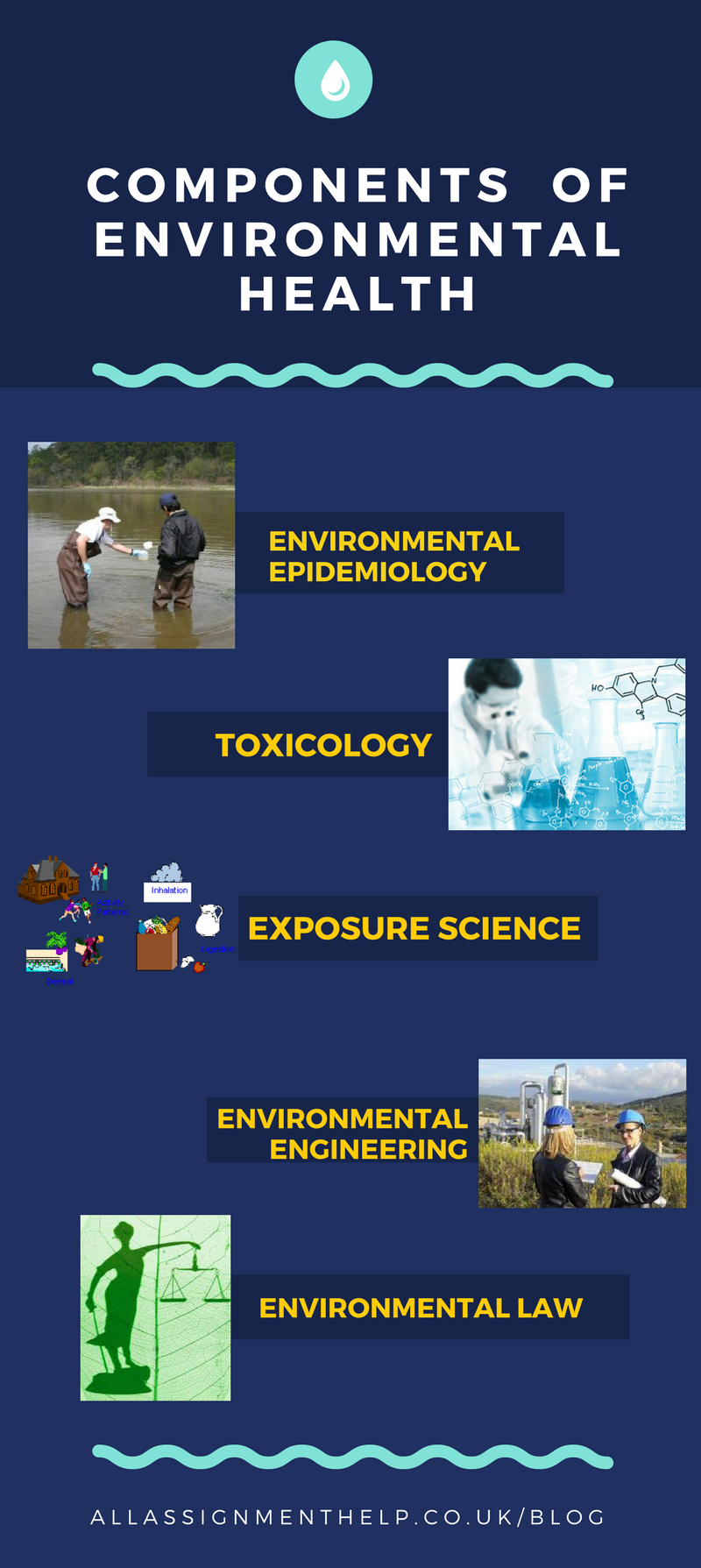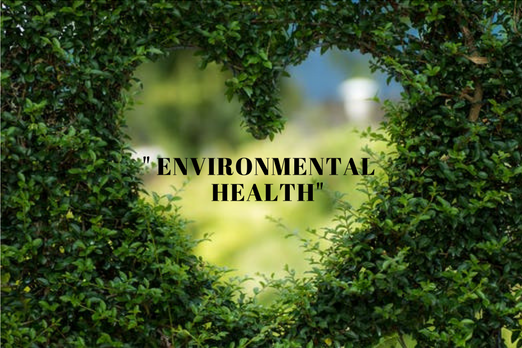Hi guys. In this article, I will be briefing you all on a crucial topic that is, Environmental Health. There are environmental health studies which deal with it. They look at various aspects and then find out ways to maintain this system. In this article, I will discuss in brief the following points:
- What is Environmental Health?
- Importance of Environmental Health.
- Components of Environmental Health.
- Environmental Health Jobs.
So, let’s get started with our discussion.
1)Environmental Health- Definition

Environmental health is a branch of public health which is concerned with all built environment and natural environment aspects which may affect human health. Health is a relevant science, study and practice of humans well being. It also deals with human health, injuries and preventing illnesses.
There are other terms too which are related to environmental health. These terms are public health protection/environmental health protection and environmental public health. These terms are very much similar to each other.
Both, Environmental health and Environmental protection are very much similar. “Environmental health” focuses on the built and natural environments for the wellness of human health. Whereas, “Environmental protection” is concerned towards saving or protecting our natural environment for the wellbeing of human health and our ecosystem.
Research in this field limits the harmful exposures with the help of natural things like soil, air food, water, etc.
World Health Organization(WHO) defines Environmental health as:
- Characteristics of the human health and disease that are known by various factors in our environment. It also relates to the practice and theory of evaluating and controlling factors in our environment which can affect human health.
- A way used by WHO, to deal with issues which can affect human health. It includes effects of radiation, chemicals, and some biological agents. Due to these, the effects are often seen indirectly on health and well being of the huge psychological, social, physical and cultural environment. The environment includes: housing, land use, urban development, and transport.
Environmental Health department
This department looks upon all the physical, biological and chemical factors which are external to a person. It also addresses the related factors behavior. It means that this department deals with all the Environmental health problems.
This department also evaluates and controls various environmental factors that can affect our health. The goal is to prevent human beings from diseases and to create a health-supportive environment.
WHO has defined environmental health department as the one that runs environmental policies through monitoring and controlling various ecological activities.
The department also promotes the improvement of ecological parameters by encouraging the use of healthy and Eco-friendly behaviors and technologies. They also have a significant role in suggesting and developing new policy areas.
2) Importance of Environmental Health

As now you know what is Environmental health and about the department that deals with it. You will now learn that, what is its importance?
There are so many environmental issues in our society these days like Air pollution, Water pollution, natural disasters, etc. Environmental health identifies all human-health-related aspects of our built and natural environment. There are so many concerns which the environmental health department deals with.
Following are the Environmental health concerns:
- Air Quality- It includes both outdoor and indoor air quality check. It also includes concerns regarding environmental tobacco smoke.

- Climate change- Includes all the concerns which are regarding climate changes in our environment. It deals with the effects of those climate changes on health.
- Disaster preparedness- deals with the concerns regarding natural disasters and the response system regarding the disaster.

- Food Safety concerns- it includes, keeping a check on agriculture, food processing, transportation, retail and wholesale distribution and sale.
- Hazardous materials- includes management of hazardous waste and contaminated site remediation. It also includes prevention of leaks from underground storage tanks. It keeps a check on the release of hazardous materials in the environment. If the release is done, then it also responds to emergency situations which occur due to it.
- Housing Concerns- Includes a check on building substandard housing and also inspects the jails and prisons.
- Land use concerns- Includes planning and smart use of the land.
- Liquid waste disposal system- Includes city wastewater treatment plants and on-site wastewater disposal system. Wastewater disposal systems include use of chemical toilets and use of septic tank.
- Medical waste disposal systems and the key managements.
- Noise pollution concern- It includes controlling the noise pollution which is also a risk to human health.
- Radiological health- It includes exposure to ionizing radiation from radioactive isotopes and X-rays.
- Recreational water illness prevention- this includes prevention of water born diseases from spas, swimming pools and freshwater bathing areas and even oceans. It is important to keep all these places neat and clean.
There are few other concerns too which are as follows:
- Solid waste management- includes landfills, solid and composting waste transfer stations, recycling facilities, etc.
- Toxic chemical exposures- protection from various harmful chemicals which can reach to us through different consumer products, workplaces, housing, water, air or soil.
- Vector control- Includes control of mosquitoes, flies, cockroaches, rodents, and other animals who can transmit pathogens.
- Safe drinking water, Childhood lead poisoning prevention and Biosafety.
According to the latest tests and researchers, it came out that 5 to 10% of (DALYs), i.e., Disability-adjusted-life years lost are due to environmental damage. Pollution in the air is the most dangerous aspect of environmental health.
Dangerous toxic exposures have been calculated to contribute to 4.9 million deaths, i.e., 8.7 % deaths and 86 million, i.e., 5.7% DALYs globally. All these are taken care by the Environmental health department. This is why environmental health is essential and to keep us safe and healthy, it is also essential to keep a check on it.
Hazardous human activities contribute towards the increasing death ratio. It is a threat which leads to miscarriages, congenital disabilities, mutations, and cancers which the most frightening factors.
So, Let’s now check out the disciplines which contribute towards its maintenance . You can also call them Components of environmental health.
3) Components of Environmental health

There are five basic components. Each of these components gives in different pieces of information to describe various problems in environmental health and then give out their solutions too.
Following are those Five components:
i. Toxicology
It is a discipline of environmental health which deals with the study of how environmental exposures lead different health outcomes. It is considered as an essential component. The research is done on animals so, as to understand the possible health outcomes in humans too.
Toxicology has the advantage of doing different random, controlled experiments as they use animals as their subjects. But, yes animals and our body are different biologically so, there are chances that the results which come on animals may not be the same for humans.
ii. Environmental epidemiology
It is the study of the relationship between human health and environmental exposures like exposure to radiations, chemicals, etc. It is also an observational study which observes the vulnerabilities that people have already experienced.
They can’t knowingly put humans to exposure to such harmful things as it might be hazardous and can cause diseases. So, the experiments are kept observational.
As they can’t use live subjects so, they believe in observing the results which are already present. They want to study the effects on humans so, they don’t use animals as their subjects.
iii. Exposure science
It is that discipline, which studies human exposure to environmental contaminants. It is done by both identifying the exposure and also checking it’s quantity.
Exposure science can also be used to support environmental epidemiology. It describes in brief, the environmental exposures that lead to a specific health outcome and also helps in identifying common vulnerabilities whose health results may be better understood through a toxicology study.
It can also be used in risk assessment to identify whether the current level of exposure, exceeds the recommended level or not? Exposure science has a plus point as it can accurately find out the quantity of exposures to specific chemicals. But, a drawback is that it can’t generate any information about health outcomes like the other disciplines.
iv. Environmental Law
It is the law which includes the statues, network of treaties, customary and common laws and regulations regarding the effects of human activity on the natural environment. This law is made to protect our environment from the harmful external damage.
v. Environmental Engineering
It is the study of scientific and engineering principles for the protection of human populations from the adverse factors. It includes improvement of environmental quality and also the protection of our environment form dangerous effects natural and human activities.
Environmental Health Jobs
There are various terms given to environmental health professionals. The list varies as following: environmental health officers or specialists, public health inspectors, environmental health practitioners or even sanitarians. In some areas, physicians and veterinarians are also considered as environmental professionals.
In the United Kingdoms, to get into environmental health jobs, you need to be a graduate in this field of environmental health. You also need to be registered and certified by the Charted Institute of Environmental health or by the Royal Environment Health Institute of Scotland.
Doing Environmental health jobs means to practice environmental health by becoming a registered environmental health specialists in either private or in public sector. You are not bounded to one area of concern. You can get into practice by involving yourself in any of the areas of interest. The list is long.
You can take care of any of the following: Food protection, institutional environment health, housing, land use, recreational water areas, noise control or air pollution control, maintaining the quality of drinking water, etc.
Environmental health Profession
The environmental health profession had its modern time roots in the public and sanitary health movement of the United Kingdom. This was started by Sir Edwin Chadwick who wanted to improve the poor law at that time. He was also the founding president of the Association of Public Sanitary Inspectors, which is now known as the “Charted Institute of Environmental Health.”
To apply for Environmental health jobs, click here.
So, Guys, this was all about environmental health. I hope that now you must have understood that, how important it is for us to know about Environmental health. This profession is fascinating, and if you have interest in researching and you want to improve your environment, then you can opt for this occupation.
I hope you liked this information. If you did, then do let me know through your comments below. Also, do subscribe to my Blog for more informative articles like this one. For any query regarding this topic or for any online assignment help, you can email us on the id given on our website. Thank you for reading. 🙂
